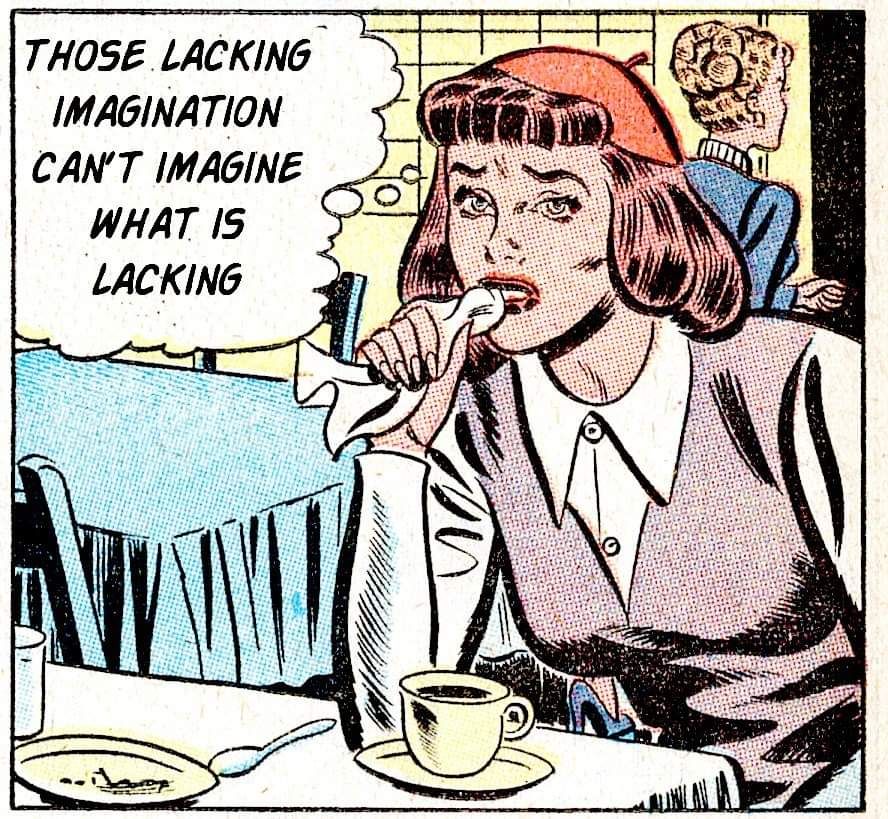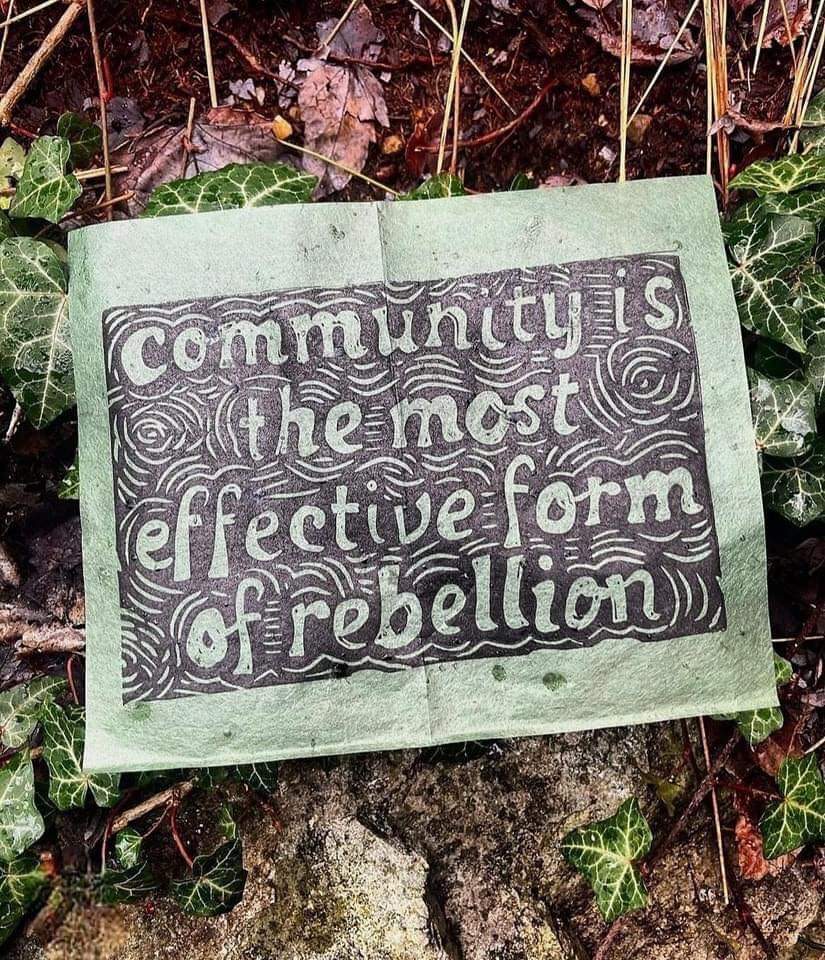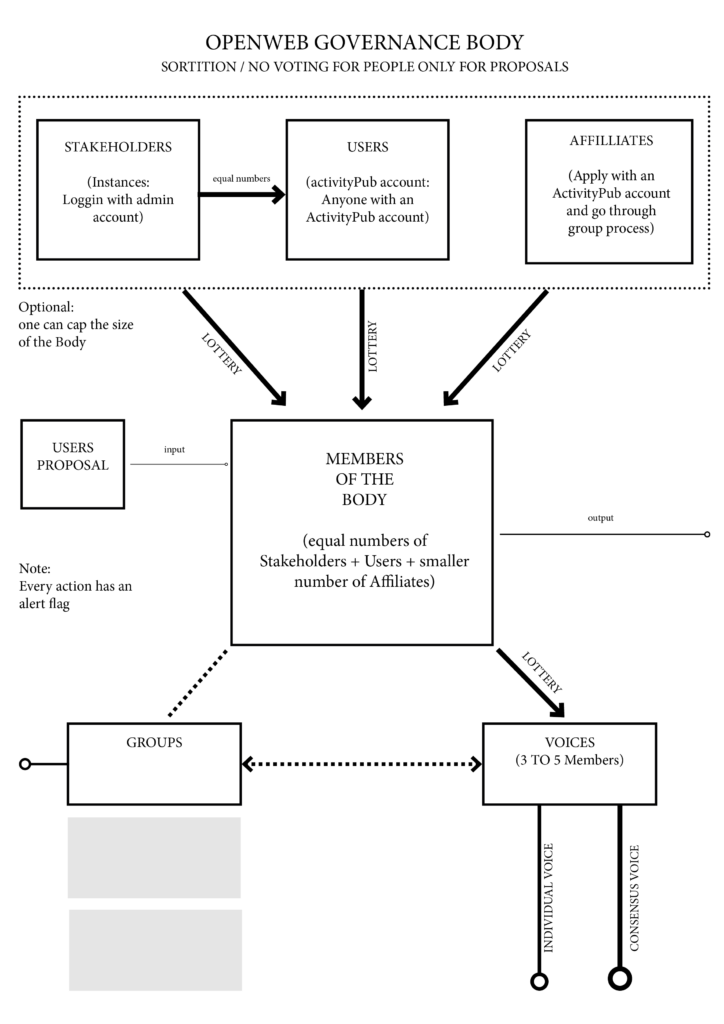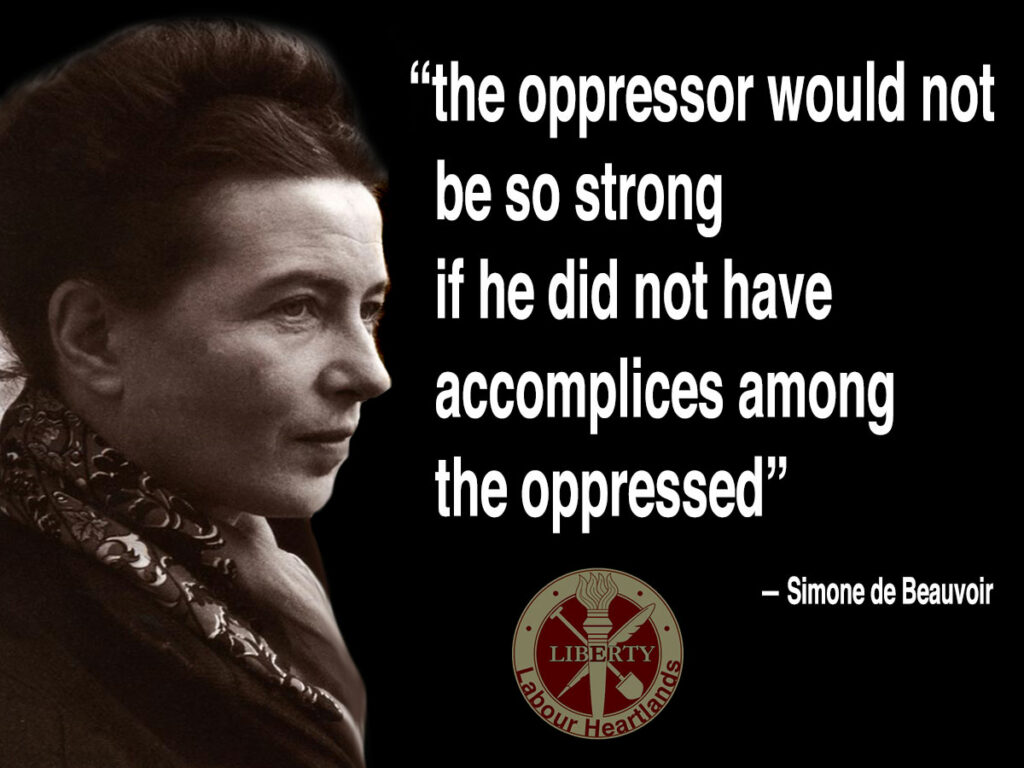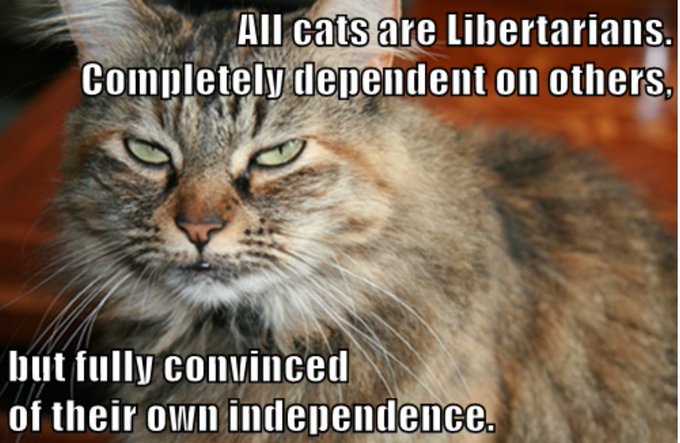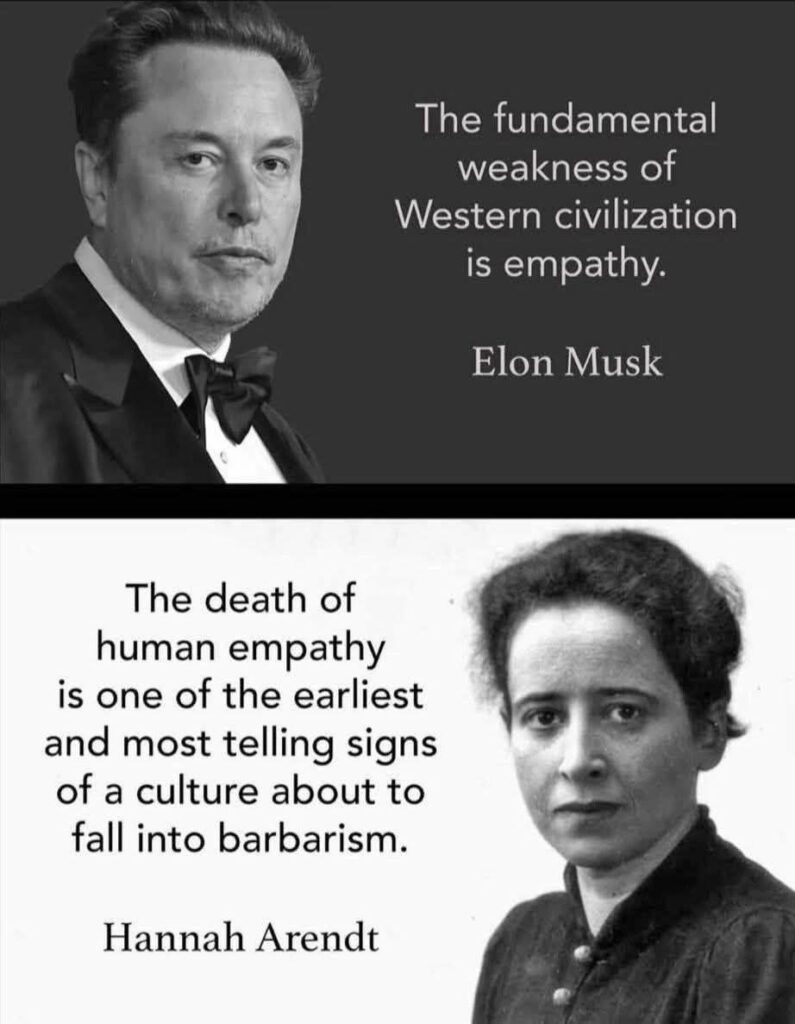DRAFT:
Rainbow Gatherings are built without formal hierarchies, no leaders, no directors, no centralized control. Instead, they operate through decentralized, consensus-based processes, fueled by volunteerism, mutual respect, and the shared intention to live cooperatively, if only for a month.
The process begins with scouting. Experienced gatherers, often seasoned from many previous gatherings, set out with newer volunteers to find potential sites. They pore over topographic maps, consult satellite imagery, and listen to local tips. The ideal spot will be miles from the nearest road or buildings, offer clean and abundant water, spacious meadows for group use, dry deadwood for fuel, enough space for parking, and natural limitations to deter unwanted car traffic.
Once a site is chosen, a crafted “invite!” goes out, online, through mailing lists, and via handouts. This simple, slightly metaphorical, document contains everything from directions and maps to contact numbers and general guidelines. The first to arrive become Seed Camp, a small team that prepares the ground for everyone else. They locate and tap fresh springs, build composting latrines, begin the first communal kitchen, cut trails, identify the main meadow, and liaise with the burocracy, like the local forest service that turn up. Environmental impact is taken seriously, efforts like reseeding, erosion control, and wildlife stewardship are all part of the preparation.
From here, the Gathering blossoms. But it doesn’t run itself, talking circals, working groups, councils are the lifeblood of collective decision-making. Held in circles, often under the trees, anyone can speak, and decisions are reached through consensus rather than votes. A talking stick or stone helps maintain focus, and once a proposal has been shaped and discussed, someone may call for “consensus by silence.” If no one objects, the idea moves forward. If even one person feels strongly against it, the discussion resumes until mutual agreement is found. This process isn’t always fast, but it is deeply inclusive and egalitarian.
Focalizers emerge naturally. They’re not appointed or elected. They’re the ones who step up, coordinating tasks, helping new people plug in, and making sure things don’t fall through the cracks. Anyone can become a #focalizer simply by doing the work and inviting others to help. The ethic is clear: avoid burnout, share the load, and don’t hoard responsibility.
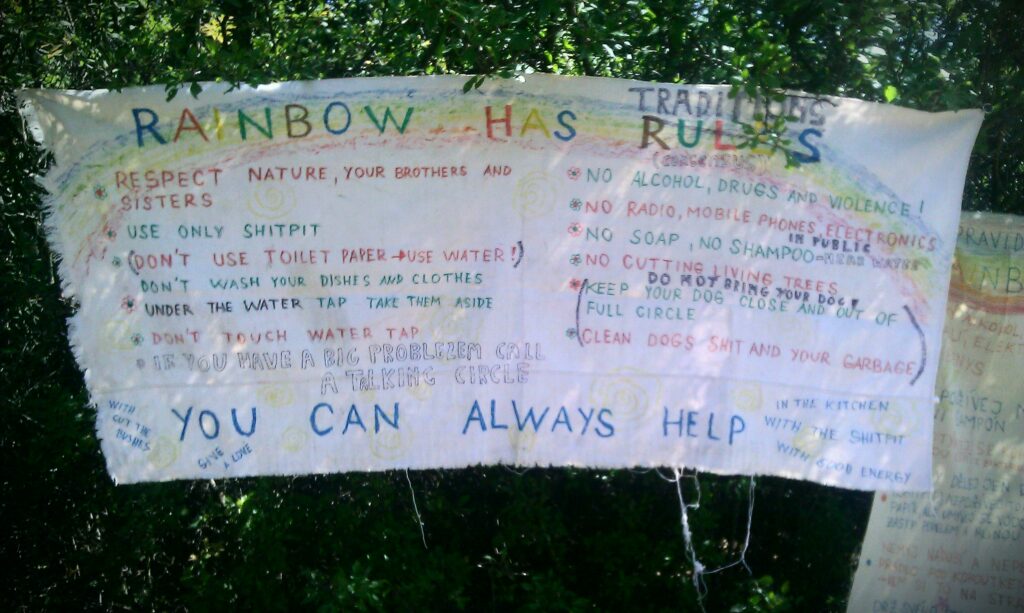
Daily coordination happens when it’s needed through camp wide councils, a practical forum where representatives from kitchens, water teams, medics, security, infrastructure, and more meet to share updates, solve problems, and allocate resources. Supplies come from the Magic Hat, the symbolic (and literal) hat passed around during shared meals to collect donations. These funds are stewarded, which means simple accounts for every transaction with full transparency. This ensures the community’s trust and keeps the focus on collective benefit.
Main kitchen is the logistical heart of the gathering, purchases bulk food and supplies with Magic Hat funds. Tea kitchens that contribute to the communal are given access to these resources. Main Supply folks ensure fairness. Donations and receipts are publicly tracked, reinforcing openness and preventing favouritism.
Roles and Responsibilities: Kitchens, Welcome Home, Shanti Sena
The main kitchens is the heartbeat of the Rainbow Gathering. Entirely volunteer-run, it provides sustenance and space for community. The kitchen is a micro-village: fires are built, pots bubble, veggies are chopped, and water is hauled, all in rhythm. Every aspect is designed to meet sanitation and environmental standards. Hand-washing stations are mandatory, food is kept off the ground and away from pests, and tools are disinfected regularly with bleach water.
Main Circle food must be vegetarian, though some periphery tea shops offer extras – like pancakes, chai, or “love soup.” Kitchens build washing systems with multiple stages: scrape, wash, rinse, disinfect. Compost pits for food scraps and greywater pits for liquid waste are maintained and used carefully to avoid polluting the forest and water courses. Fetching firewood and hauling water for a kitchen is one of the easiest ways for a newcomer to contribute and feel part of the #DIY community.
Welcome Home is the first human contact many have when arriving. It’s a place of warmth and orientation at the end of the car parking trail. Here, tired travellers are offered water, a snack, a kind word, and printed guidelines about the gathering’s values and customs. It’s a gentle bridge from the outside world into the communal space being created.
Then there’s Shanti Sena, the peacekeeping network that is everyone’s responsibility. There’s no official, hard, security team. Instead, when conflict, distress, or danger arises, anyone can call out “Shanti Sena!” and others respond, mediators and willing volunteers show up to listen, de-escalate, and support resolution. If a situation requires more assertive action, it’s still done with care, firm but nonviolent, protective rather than punitive.
Shanti Sena works best in communities where people know and care for each other. Camps often form into informal neighborhoods, where people look out for one another and communicate openly. The goal is always restoration, not exclusion. Conflict is a chance to grow, not a reason to punish.
In this decentralized fabric – kitchens, welcome crews, peacekeeping, talking circals, councils, supply lines, and consensus – a temporary village or town takes form. It is imperfect, often messy, but also deeply alive. A cooperative organism woven from shared intent and mutual aid.
And when the gathering ends, it all disappears, leave-no-trace, like it never happened. But for those who participated, something lasting remains: the memory of what people can create together, without bosses or blueprints, when they trust the process and each other.
